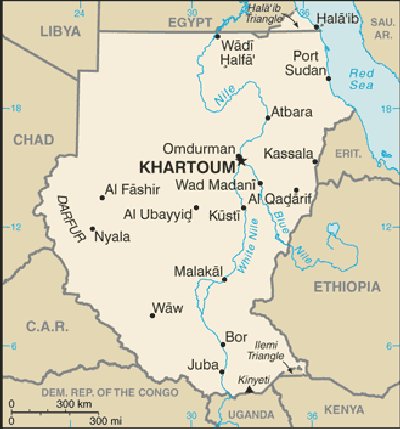Hurray, a cool one!
Let’s put it this way: the Sudanese government in Khartoum will not like it. After all, it introduced Islamic Sharia law in 1983 and banned the sale of alcohol. But what can it do? Tensions between northern and southern Sudan over disputed oilfields, with both sides apparently arming for war, are still running high, even after a peace deal in 2005, which allowed the southern rebels to form a secular government. Nevertheless, having their own brewery must have been high on the former rebels’ agenda or they would not have allowed SABMiller into their country.
Sudan’s economy is booming on the back of increases in oil production and large inflows of foreign direct investment. GDP growth registered more than 10 percent per year in 2006 and 2007. South Sudan, which is slightly larger than France, also benefited from this, as it gets a cut from the proceeds. This may have persuaded SABMiller that the time was right for entering this market of 7.5 million people (UNICEF estimates) of whom 55 percent are younger than 18 years.
The capital of Juba with its population of 250,000 people is not a transportation hub any longer as it was before the civil war, but things are getting better and the road conditions are being improved, not least since the Swiss Foundation for Mine Action (FSD) started in 2003 to clear the roads leading from Juba to Uganda and Kenya.
That these roads have gotten better, SABMiller will be one of the first ones to have noticed. It was on these roads to Uganda that Sudanese on bicycles would ride, bringing back as many crates of SABMiller’s Ugandan beer Nile as they could carry.
SABMiller’s Juba brewery will have a total capacity of 180,000 hl and will produce beer and soft drinks. The plant will create 200 direct jobs and have the potential to create as many as 6,000 indirect employment opportunities.
SABMiller has not announced yet whether it also plans to produce a sorghum beer, which is what the rural population tends to consume.

